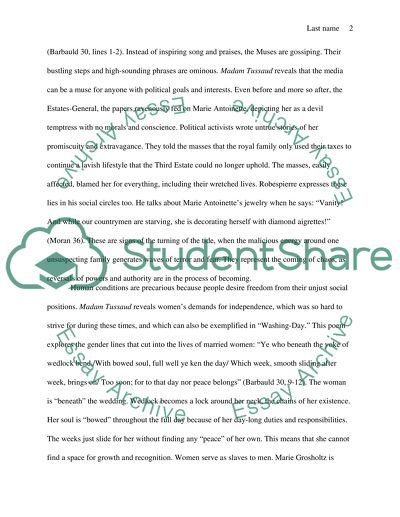Cite this document
(“Impermanence of human conditions in Madame Tussaud, Washing-Day, Essay”, n.d.)
Impermanence of human conditions in Madame Tussaud, Washing-Day, Essay. Retrieved from https://studentshare.org/literature/1458148-impermanence-of-human-conditions-in-madame-tussaud-washing-day-enquiry-and-close-of-spring
Impermanence of human conditions in Madame Tussaud, Washing-Day, Essay. Retrieved from https://studentshare.org/literature/1458148-impermanence-of-human-conditions-in-madame-tussaud-washing-day-enquiry-and-close-of-spring
(Impermanence of Human Conditions in Madame Tussaud, Washing-Day, Essay)
Impermanence of Human Conditions in Madame Tussaud, Washing-Day, Essay. https://studentshare.org/literature/1458148-impermanence-of-human-conditions-in-madame-tussaud-washing-day-enquiry-and-close-of-spring.
Impermanence of Human Conditions in Madame Tussaud, Washing-Day, Essay. https://studentshare.org/literature/1458148-impermanence-of-human-conditions-in-madame-tussaud-washing-day-enquiry-and-close-of-spring.
“Impermanence of Human Conditions in Madame Tussaud, Washing-Day, Essay”, n.d. https://studentshare.org/literature/1458148-impermanence-of-human-conditions-in-madame-tussaud-washing-day-enquiry-and-close-of-spring.


